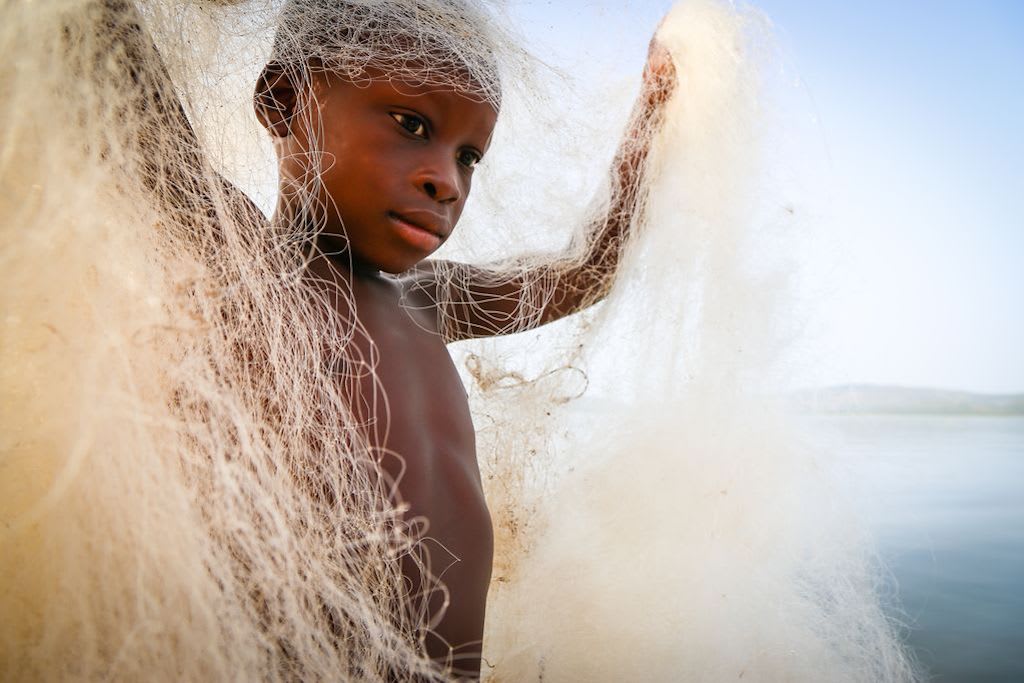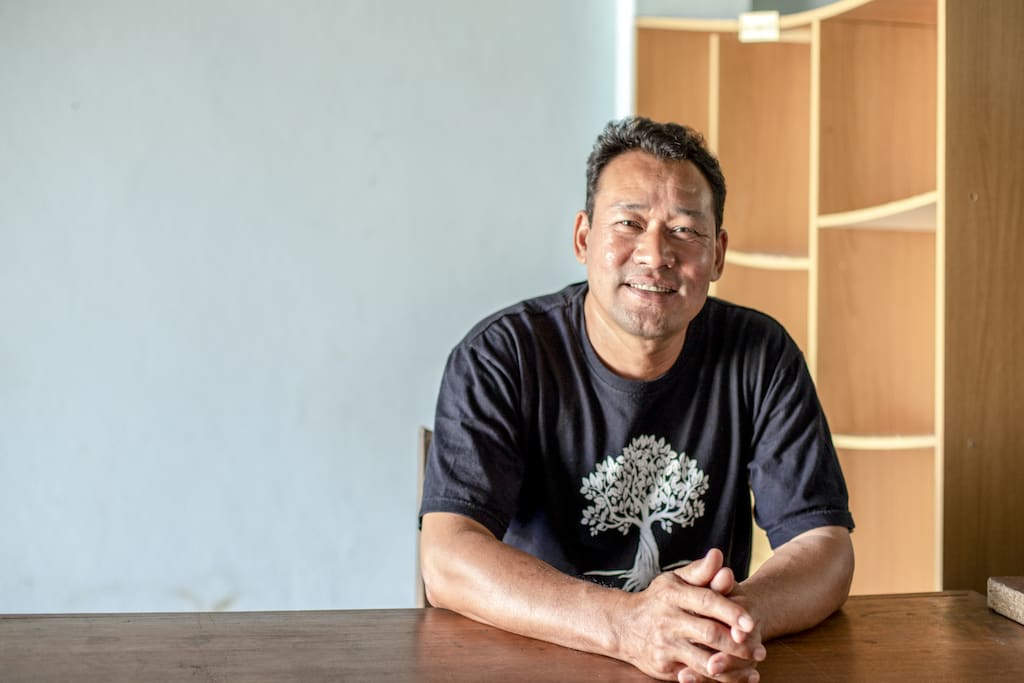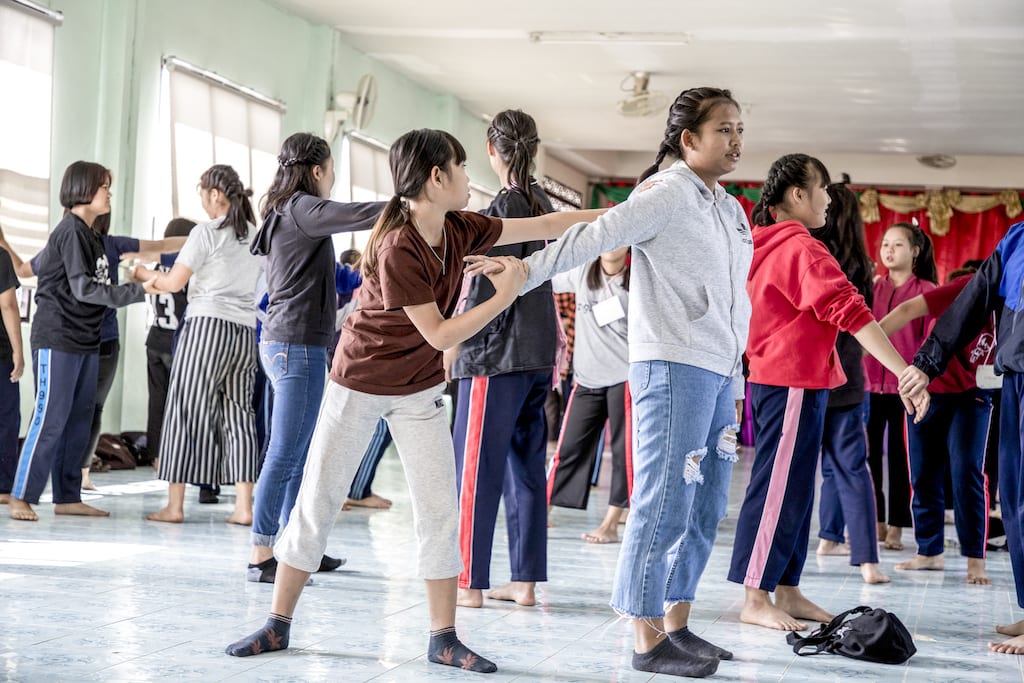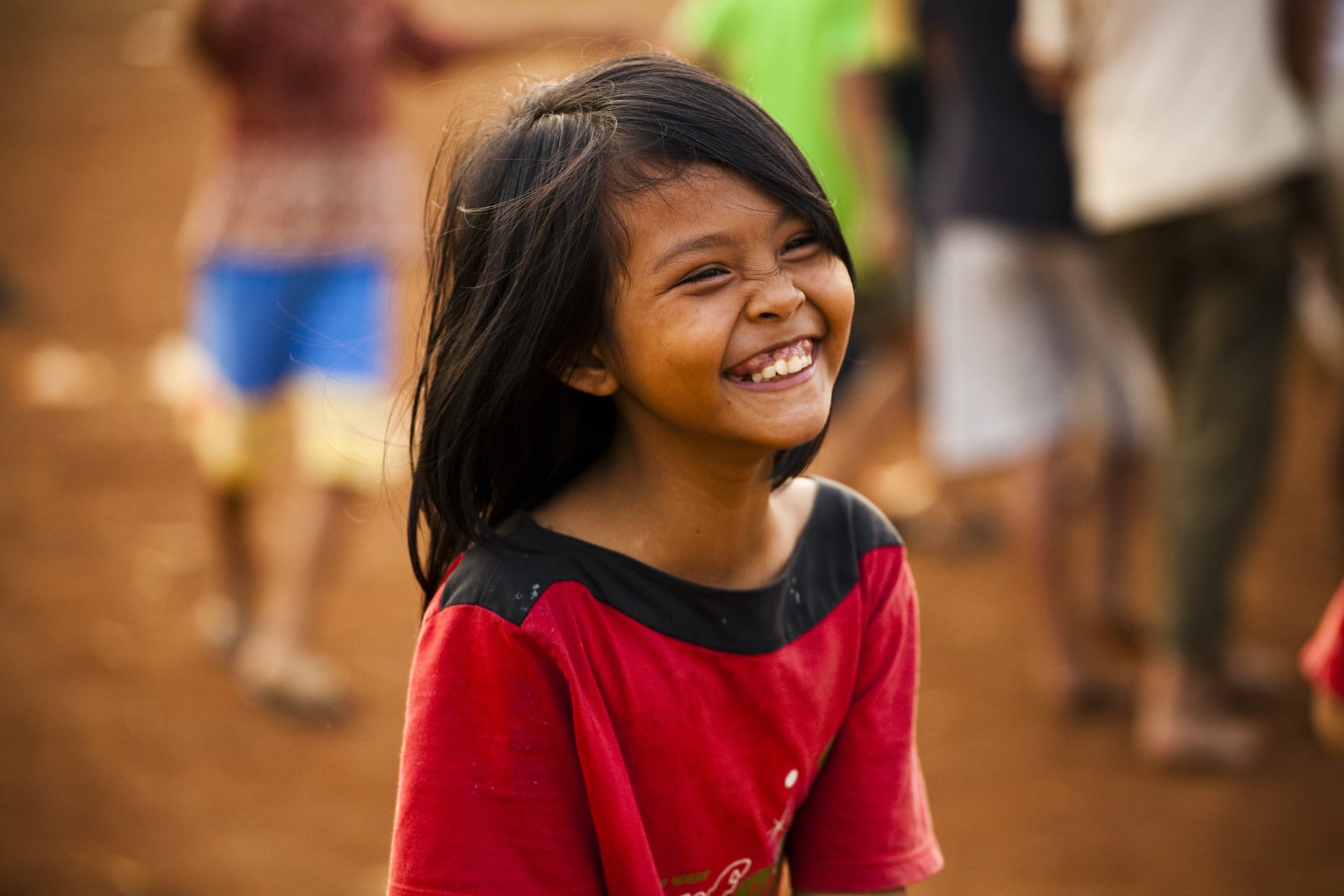We’ve shared many stories with you about how Compassion staff around the world have responded to cases of human trafficking amongst children in our programs.
Working to ensure children are known, loved and protected means standing up with and for them in the event that violent perpetrators are present in their life. We partner with families, local authorities and like-minded organizations to rescue, protect and rehabilitate victims of child trafficking.
But our hope is that a child would never be in such a situation in the first place. Compassion’s child sponsorship program is effective in not just responding to human trafficking, but preventing it, too.
What is human trafficking?
The United Nations defines human trafficking as the recruitment, transportation, transfer, harbouring or receipt of persons through the threat or use of force, coercion, abduction, deception, the abuse of power or other violent and manipulative means, for the purpose of exploitation (United Nations). Forms of exploitation can include sexual exploitation, forced labour or child marriage. It is without a doubt one of the most shocking and harrowing evils at work in our world today.
Children can be particularly vulnerable to being trafficked. Children make up almost a third of all human trafficking victims worldwide (UNICEF). There are more than 40 million human trafficking victims globally (Global Slavery Index).
“Traffickers target vulnerability.”
While no community is immune to human trafficking, factors like poverty can place people at a higher risk of being trafficked. “Traffickers look for people living in poverty, those who are desperate, those without legitimate job options, those without educational opportunities.” (UNICEF)
Human traffickers often lure victims through seemingly legitimate job offers in far-away cities or the promise of lucrative pay. For a child or family living on less than a couple of dollars a day, this can be incredibly enticing. For some, this can seem like the only option in the face of extreme poverty and starvation.
This was the case for Ebenezer, who was trafficked and forced to work at a fishery on Lake Volta in Ghana. The promise of income, housing and regular meals seemed like a relief to his grandmother, who struggled immensely to take care of nine of her grandchildren.
But of course, the offer was too good to be true.

A recreated scene of life on Lake Volta. (Recreated willingly and with permission.)
Protection and prevention through child sponsorship
Poverty and the lack of other opportunities put children at a higher risk of being trafficked. That’s why releasing children from poverty and introducing them to broad possibilities for their future are keys to preventing human trafficking—and that is exactly what child sponsorship does.
When a child is sponsored, they are enrolled in school. Their parents or caregivers gain access to income generation skills, workshops and tools. They are encouraged and equipped to start planning for their future. They are connected with loving staff at one of Compassion’s local church partners who are committed to knowing what is happening in their life and protecting their best interests. Every Compassion staff member globally is trained in rigorous child protection standards.
By lifting children and families out of poverty and giving them access to education and income generation, Compassion sponsors are an active part of preventing human trafficking.
The two million children currently registered in Compassion’s program in 25 countries around the world aren’t just being released from poverty in Jesus’ name. They are being protected from exploitation and inspired to pursue bright futures for themselves and their families.
Meet Somsak
Somsak is a Compassion centre director in Thailand, in a region where there are high rates of human trafficking.

Somsak is a Compassion centre director in Thailand
Officer Songkrod Souisod, a police officer who has partnered with Compassion centres like Somsak’s on prevention initiatives, paints an alarming picture of trafficking in the region: “Our crime records show that in human trafficking areas, much of the targeting for the sex trade industry can be around age 14. When children this age can’t afford to continue in education and they are poor or have no job, they may be more at risk. The sex trade agency may trap them with the promise of an income. The girl may fully know that it’s a sex trade industry job, but she may still choose to go. And once the agency has taken her, it’s often too late to turn around.”
Somsak knows that just by being sponsored, the children at his Compassion centre are less vulnerable to being trafficked. Beyond this, he decided to take additional steps to help prevent human trafficking in his community, particularly amongst the girls, who are particularly vulnerable in the region. “We estimate that 95 per cent of victims … are girls,” says Somsak.
Somsak spoke to staff at the other 11 Compassion centres in the region, encouraging them to get together and find methods for prevention. They agreed that a self-defence training would be an ideal way to help teenagers gain practical skills and understand the risks of trafficking. They also decided these classes would help students understand the abuse and harm that human trafficking causes. Together, they contacted local agencies and the local police force to help deliver the self-defence training.

Compassion program participants in Thailand participate in a self-defence training program.
“The program was so much fun,” said Teerunnas, age 13. “I learned about the dangers, [and I also] learned about self-defence for the first time. I will use this in my life to protect myself.”
As a Compassion centre director, Somsak identified this particular vulnerability in his community, and took active steps to protect the youth at his Compassion centre. Actively giving youth the awareness and the tools to protect themselves from traffickers is another way that child sponsorship is preventing human trafficking!
Child sponsorship can help prevent human trafficking. Sponsor a child today!
Learn more
Field reporting by Helen Manson (Ghana) and Piyamary Shinoda (Thailand)





